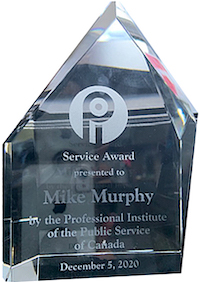Bill C-224 aims to create a single tax return administered by Revenu Québec. We oppose and are actively working to stop this bill.
Many Audit, Financial and Scientific (AFS) Group members are understandably concerned about the impact it could have on their careers and positions.
Quebec residents are the only taxpayers in Canada that must file two separate tax returns, one federal and one provincial. Other provinces have agreements that allow the Canada Revenue Agency (CRA) to administer both federal and provincial taxes.
Sponsored by Bloc Québecois Member of Parliament Gabriel Ste-Marie, Bill C-224 was introduced last year but was not examined by Parliament because of other governmental priorities linked to the COVID-19 pandemic. It has just resurfaced and is expected to be reviewed in committee some time in 2021.
While there is no indication at this point that it will be adopted, we are not taking any chances. We are about to begin the lobbying campaign we would have conducted last year had there been no pandemic.
As a first step, President Daviau recently sent a letter to several influential MPs outlining our principal concerns with the bill:
- There is no clear evidence that decentralization of Canadian tax administration to a province would result in greater savings, efficiency, compliance or accountability.
- A shift from the CRA to Revenu Québec would require a significant expansion of the latter’s capacity, as well as an expansion of its administration budget. The CRA is already in a position to centralize Québec’s tax administration.
- International agreements aimed at fighting tax evasion are signed between central governments, and Quebec would not be in a position to perform the federal government’s work in this area.
- The proposed transfer would have a significant impact on 2 Quebec regions, Shawinigan and Jonquière, at a time of ongoing economic and social upheavals linked to the COVID-19 pandemic.
We are urging these influential MPs to oppose Bill C-224 and have asked for virtual meetings with them as soon as possible. We will do our utmost to defeat this potential legislation and protect our CRA members’ jobs.




